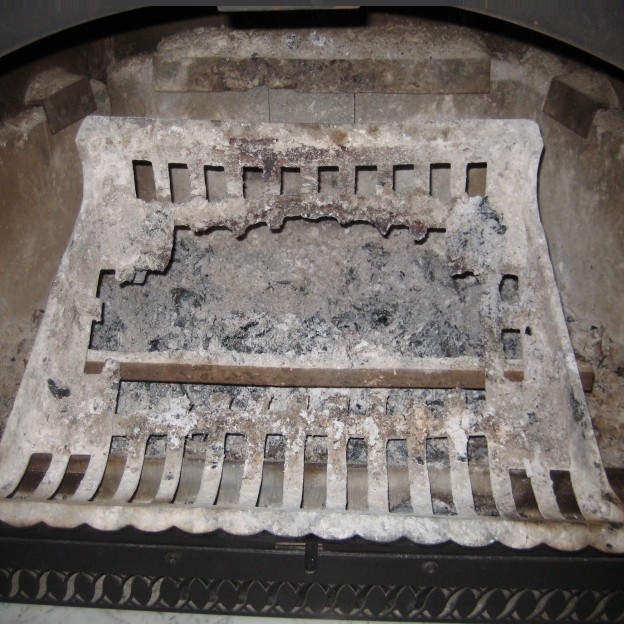Why do fire grates melt? A handy guide to prolonging the life of your grate.

We are often asked by customers why their fire grate has bent, warped or even melted.
The quick answer is "your grate is getting too hot to the point where the cast iron is starting to melt". This overheating can be caused by a number of factors which we have detailed below in order of importance.
- Remove ash from underneath the grate everyday - The absolute number 1 reason fire grates melt is simply that the ash underneath the grate is not being cleaned out often enough. A build-up of ash underneath the grate prevents cooler air from being drawn through the grate bars. When cooler air is not drawing from under the grate this creates a gradual increase in temperature until the fire grate fails. Grates need a direct flow of air from underneath to prevent overheating so ensure ash is removed every day or at the very least keep make sure ash does not build-up so it is anywhere near the grate bars.
- Mixing fuels and smokeless fuels - The number 2 reason fire grates fail is due to the amount of fuels which are now available to burn, the main culprits being some smokeless fuels and manufactured fuels. To get into this subject would require a whole new article being written but these are the things you need to know. Any fuel which is "manufactured" such as manufactured coals or smokeless fuels have had parts taken out and added to them to add certain characteristics to the fire such as burning longer or being smokeless. When buying fuel pay attention to statements such as "burns 40% hotter", although this sounds good this is terrible for the lifespan of your fire grate. You can mix fuels or use manufactured fuels however be aware this WILL reduce the lifespan of a grate due to the additional heat created.
- Temper the metal on your first fire - Starting with a small fire when using a grate for the first time will prolong its life.
- Pull out the ashpan cover - If there are no air gaps in your ashpan cover air will not draw from underneath causing overheating as detailed above.
- Don't put fuel all in one spot - Spreading out fuels evenly prevents hotspots in the grate and will increase the lifespan.
- Do not use water to put your fire out - The sudden decrease in temperature will reduce the lifespan of the grate.
Most solid fuel appliance salesmen have seen bottom grates with their bars a jagged ruin, burned away beyond repair. Sometimes only the back portion has gone, sometimes the whole centre.
Once upon a time, the average open fire was lit during the day and allowed to go out at night. The clearance of ashes from underneath was generally done regularly every morning, but sometimes people only partially cleared them or let them accumulate till they were actually in contact with the bars. This had the effect of trapping the heat when the fire was alight, and eventually the temperature at the point of contact became so high that the iron was burned or melted. Over a period this resulted in the destruction of at least part of the bars.
Exactly the same thing can occur with modern fires, room heaters and stoves, which are usually kept alight continuously for the whole winter, especially those which provide for radiator heating. All modern appliances have some form of adjustable air control to regulate the burning rate of the fuel. Air for burning the fuel passes through the air control and then through the fire bars. This has a cooling effect on the fire bars and prevents them from seriously overheating when a bright fire is burning. If, however, the ashes are not cleared regularly from under the fire bars, and allowed to build up to come into contact with them, the fire bars are then screened from cooling air and become sandwiched between a very hot fire bed and hot ashes. The result is that roughly the same amount of heat as was used to melt the iron in the foundry is again applied, and the iron again starts to melt.
The trouble is accentuated if too much small fuel is used for banking overnight the continuous burning fire, room heater or independent boiler. When these appliances are idling overnight no great heat is generated and no harm results. But when the fire is riddled of ash in the morning, there is a tendency for small unburnt fuel to drop into the ashpan where it will burn, sandwiching the fire bars between two fires.
It must be remembered that appliances, like open fires, room heaters and independent boilers, kept burning continuously twenty-four hours a day throughout the winter, need to have the ashpan emptied of ash at least twice a day to avoid burning out fire bars. In any case it is easier and safer to dispose of the ash before the ashpan becomes over-full.
